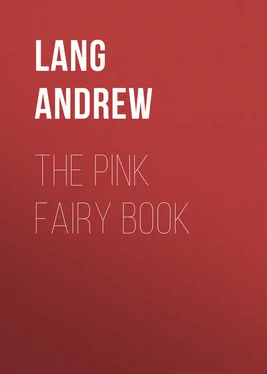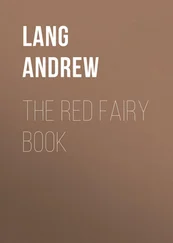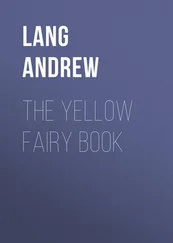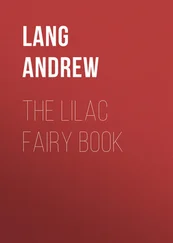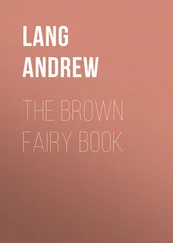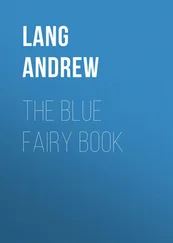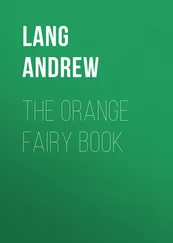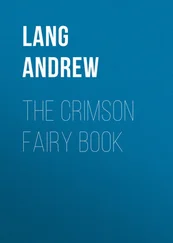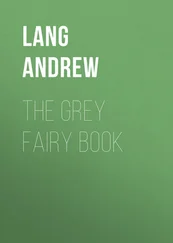Andrew Lang - The Pink Fairy Book
Здесь есть возможность читать онлайн «Andrew Lang - The Pink Fairy Book» — ознакомительный отрывок электронной книги совершенно бесплатно, а после прочтения отрывка купить полную версию. В некоторых случаях можно слушать аудио, скачать через торрент в формате fb2 и присутствует краткое содержание. Жанр: foreign_antique, foreign_prose, на английском языке. Описание произведения, (предисловие) а так же отзывы посетителей доступны на портале библиотеки ЛибКат.
- Название:The Pink Fairy Book
- Автор:
- Жанр:
- Год:неизвестен
- ISBN:нет данных
- Рейтинг книги:3 / 5. Голосов: 1
-
Избранное:Добавить в избранное
- Отзывы:
-
Ваша оценка:
- 60
- 1
- 2
- 3
- 4
- 5
The Pink Fairy Book: краткое содержание, описание и аннотация
Предлагаем к чтению аннотацию, описание, краткое содержание или предисловие (зависит от того, что написал сам автор книги «The Pink Fairy Book»). Если вы не нашли необходимую информацию о книге — напишите в комментариях, мы постараемся отыскать её.
The Pink Fairy Book — читать онлайн ознакомительный отрывок
Ниже представлен текст книги, разбитый по страницам. Система сохранения места последней прочитанной страницы, позволяет с удобством читать онлайн бесплатно книгу «The Pink Fairy Book», без необходимости каждый раз заново искать на чём Вы остановились. Поставьте закладку, и сможете в любой момент перейти на страницу, на которой закончили чтение.
Интервал:
Закладка:
‘I like that very much indeed,’ said the father. ‘Unless the others exert themselves to the utmost, the house will be yours.’
Soon after they saw a man driving a carriage furiously towards them. ‘Now, father, you shall see what I can do!’ said the blacksmith, and he sprang after the carriage, tore off the four shoes of the horse as it was going at the top of its speed, and shod it with four new ones without checking its pace.
‘You are a clever fellow!’ said the father, ‘and know your trade as well as your brother. I really don’t know to which of you I shall give the house.’
Then the third son said, ‘Father, let me also show you something;’ and, as it was beginning to rain, he drew his sword and swung it in cross cuts above his head, so that not a drop fell on him, and the rain fell heavier and heavier, till at last it was coming down like a waterspout, but he swung his sword faster and faster, and kept as dry as if he were under cover.
When the father saw this he was astonished, and said, ‘You have produced the greatest masterpiece: the house is yours.’
Both the other brothers were quite satisfied, and praised him too, and as they were so fond of each other they all three remained at home and plied their trades: and as they were so experienced and skilful they earned a great deal of money. So they lived happily together till they were quite old, and when one was taken ill and died the two others were so deeply grieved that they were also taken ill and died too. And so, because they had all been so clever, and so fond of each other, they were all laid in one grave.
The Snow-queen
Translated from the German of Hans Andersen by Miss Alma Alleyne
There was once a dreadfully wicked hobgoblin. One day he was in capital spirits because he had made a looking-glass which reflected everything that was good and beautiful in such a way that it dwindled almost to nothing, but anything that was bad and ugly stood out very clearly and looked much worse. The most beautiful landscapes looked like boiled spinach, and the best people looked repulsive or seemed to stand on their heads with no bodies; their faces were so changed that they could not be recognised, and if anyone had a freckle you might be sure it would be spread over the nose and mouth.
That was the best part of it, said the hobgoblin.
But one day the looking-glass was dropped, and it broke into a million-billion and more pieces.
And now came the greatest misfortune of all, for each of the pieces was hardly as large as a grain of sand and they flew about all over the world, and if anyone had a bit in his eye there it stayed, and then he would see everything awry, or else could only see the bad sides of a case. For every tiny splinter of the glass possessed the same power that the whole glass had.
Some people got a splinter in their hearts, and that was dreadful, for then it began to turn into a lump of ice.
The hobgoblin laughed till his sides ached, but still the tiny bits of glass flew about.
And now we will hear all about it.
In a large town, where there were so many people and houses that there was not room enough for everybody to have gardens, lived two poor children. They were not brother and sister, but they loved each other just as much as if they were. Their parents lived opposite one another in two attics, and out on the leads they had put two boxes filled with flowers. There were sweet peas in it, and two rose trees, which grow beautifully, and in summer the two children were allowed to take their little chairs and sit out under the roses. Then they had splendid games.
In the winter they could not do this, but then they put hot pennies against the frozen window-panes, and made round holes to look at each other through.
His name was Kay, and hers was Gerda.
Outside it was snowing fast.
‘Those are the white bees swarming,’ said the old grandmother.
‘Have they also a queen bee?’ asked the little boy, for he knew that the real bees have one.
‘To be sure,’ said the grandmother. ‘She flies wherever they swarm the thickest. She is larger than any of them, and never stays upon the earth, but flies again up into the black clouds. Often at midnight she flies through the streets, and peeps in at all the windows, and then they freeze in such pretty patterns and look like flowers.’
‘Yes, we have seen that,’ said both children; they knew that it was true.
‘Can the Snow-queen come in here?’ asked the little girl.
‘Just let her!’ cried the boy, ‘I would put her on the stove, and melt her!’
But the grandmother stroked his hair, and told some more stories.
In the evening, when little Kay was going to bed, he jumped on the chair by the window, and looked through the little hole. A few snow-flakes were falling outside, and one of the, the largest, lay on the edge of one of the window-boxes. The snow-flake grew larger and larger till it took the form of a maiden, dressed in finest white gauze.
She was so beautiful and dainty, but all of ice, hard bright ice.
Still she was alive; her eyes glittered like two clear stars, but there was no rest or peace in them. She nodded at the window, and beckoned with her hand. The little boy was frightened, and sprang down from the chair. It seemed as if a great white bird had flown past the window.
The next day there was a harder frost than before.
Then came the spring, then the summer, when the roses grew and smelt more beautifully than ever.
Kay and Gerda were looking at one of their picture-books – the clock in the great church-tower had just struck five, when Kay exclaimed, ‘Oh! something has stung my heart, and I’ve got something in my eye!’
The little girl threw her arms round his neck; he winked hard with both his eyes; no, she could see nothing in them.
‘I think it is gone now,’ said he; but it had not gone. It was one of the tiny splinters of the glass of the magic mirror which we have heard about, that turned everything great and good reflected in it small and ugly. And poor Kay had also a splinter in his heart, and it began to change into a lump of ice. It did not hurt him at all, but the splinter was there all the same.
‘Why are you crying?’ he asked; ‘it makes you look so ugly! There’s nothing the matter with me. Just look! that rose is all slug-eaten, and this one is stunted! What ugly roses they are!’
And he began to pull them to pieces.
‘Kay, what are you doing?’ cried the little girl.
And when he saw how frightened she was, he pulled off another rose, and ran in at his window away from dear little Gerda.
When she came later on with the picture book, he said that it was only fit for babies, and when his grandmother told them stories, he was always interrupting with, ‘But – ’ and then he would get behind her and put on her spectacles, and speak just as she did. This he did very well, and everybody laughed. Very soon he could imitate the way all the people in the street walked and talked.
His games were now quite different. On a winter’s day he would take a burning glass and hold it out on his blue coat and let the snow-flakes fall on it.
‘Look in the glass, Gerda! Just see how regular they are! They are much more interesting than real flowers. Each is perfect; they are all made according to rule. If only they did not melt!’
One morning Kay came out with his warm gloves on, and his little sledge hung over his shoulder. He shouted to Gerda, ‘I am going to the market-place to play with the other boys,’ and away he went.
In the market-place the boldest boys used often to fasten their sledges to the carts of the farmers, and then they got a good ride.
When they were in the middle of their games there drove into the square a large sledge, all white, and in it sat a figure dressed in a rough white fur pelisse with a white fur cap on.
Читать дальшеИнтервал:
Закладка:
Похожие книги на «The Pink Fairy Book»
Представляем Вашему вниманию похожие книги на «The Pink Fairy Book» списком для выбора. Мы отобрали схожую по названию и смыслу литературу в надежде предоставить читателям больше вариантов отыскать новые, интересные, ещё непрочитанные произведения.
Обсуждение, отзывы о книге «The Pink Fairy Book» и просто собственные мнения читателей. Оставьте ваши комментарии, напишите, что Вы думаете о произведении, его смысле или главных героях. Укажите что конкретно понравилось, а что нет, и почему Вы так считаете.
